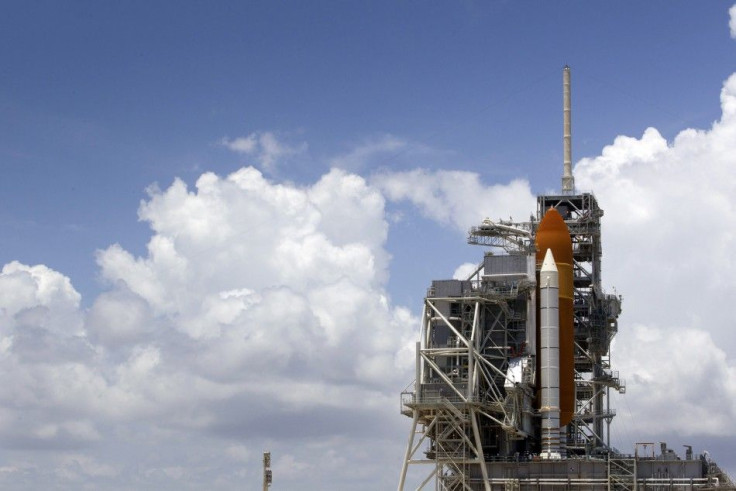Shuttle Launch: Atlantis To Carry First iPhone Into Space

Atlantis STS-135 is going to be the last mission for NASA's storied space shuttle program but like many of its predecessor missions it will have a space first.
The first iPhone to travel into space will be a part of the upcoming mission. A company in Houston, Odyssey Space Research, has developed an iPhone application that the Atlantis astronauts will use that will help track their scientific results and may be able to even aid navigation. The phone will be housed inside a small research platform built by NanoRacks and placed inside the International Space Station permanently.
The app will be called SpaceLab for iOS. It is actually available to smartphone users on Earth and can perform the same experiments with the software simulating microgravity. The app was designed with the iPhone's gyro, accelerometer, cameras and chip in mind.
Over the years, the space shuttle program has been home to many firsts. This includes the first African American in space, the first female astronaut, the creation of the International Space Station, the launching of the Hubble telescope and much more.
Along with an iPhone, the crew of the Atlantis space shuttle will bring aboard numerous items commemorating what will be the final mission of Space Shuttle Program. This includes the flag from the first shuttle flight in 1981. It will be brought to the International Space Station and kept there.
Other items going aboard the final shuttle mission will be various American flags, the American honor flag, things from NASCAR and more than 500 STS-135 mission patches. The tradition of bringing commemorative items into space began with the first Mercury missions back when the space race between the U.S. and Soviets first began.
The astronauts on Atlantis will be Commander Chris Ferguson, Pilot Doug Hurley and Mission Specialists Sandy Magnus and Rex Walheim. All four are veterans of the space shuttle program.
Following Atlantis'12-days in space, the ship will land back in NASA's Kennedy Space Center and retire into a museum along with three other shuttles. If there are no delays then that will be the day the space shuttle program dies.
NASA, however, is adamant that the space agency and its space exploration goals will not cease at the end of the space shuttle program. The company has laid out several plans for the future of space exploration under its direction.
As a former astronaut and the current NASA Administrator, I'm here to tell you that American leadership in space will continue for at least the next half-century because we have laid the foundation for success and failure is not an option, Charles Bodden, NASA's Administrator, said in a recent speech.
One thing that could hamper the end of the space shuttle program is weather. Right now, NASA is saying there is 30 percent chance of favorable weather for the launch this week. The agency is still going through as if the launch will happen but are prepared to delay it if necessary.
Follow Gabriel Perna on Twitter at @GabrielSPerna
© Copyright IBTimes 2024. All rights reserved.











